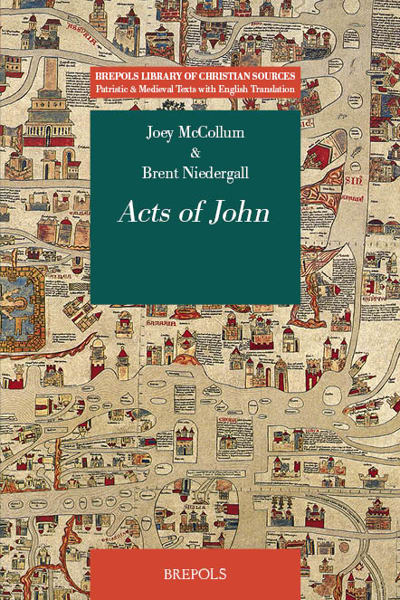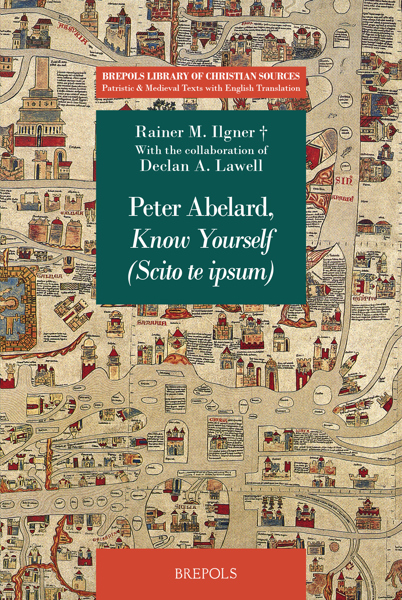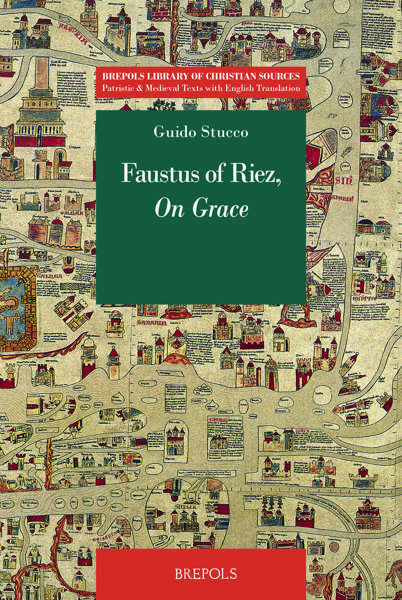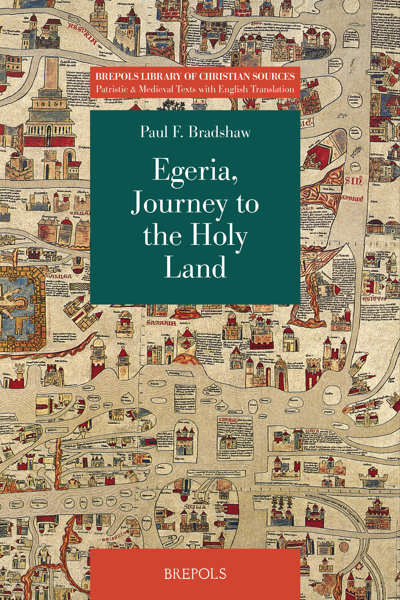
- Pages: 309 p.
- Size:156 x 234 mm
- Language(s):English, Latin
- Publication Year:2025
- € 55,00 EXCL. VAT RETAIL PRICE
- ISBN: 978-2-503-60163-2
- Paperback
- Available
- € 55,00 EXCL. VAT RETAIL PRICE
- ISBN: 978-2-503-60164-9
- E-book
- Available
R.M. Ilgner (1944-2013) was co-editor of the Fontes Christiani series. His edition and English translation of Know Yourself grew out of the work on a German translation, published in 2011 as Fontes Christiani 44.
Declan Lawell teaches Latin at The Blue Coat School in Liverpool.
Peter Abelard (1079-1142), famous for his unhappy love story with Heloise, which he wrote down in his autobiographical work Historia calamitatum, was among the most respected scholars of his time. Brilliant as a philosopher and theologian, he was one of the co-founders of scholasticism, seeking to elucidate theological facts through logic.
Scito te ipsum is one of the most important texts of the twelfth century. Only in the later phase of his life and work did Abelard decide to separate moral themes from his overall theological schema, and to dedicate a monograph to them under the guiding concepts of "sin" (First Book) and "obedience before God" (Second Book, unfinished). As Ethica nostra it was intended to provide a Christian conception alongside a philosophical ethics, and to summarise the results of his previous studies.
Along with Abelard’s entire theology, this treatise was also condemned as heretical by Pope Innocent II, and was long considered lost. Since its rediscovery in the 18th century, it has met with lively interest both from a theological and also from a philosophical point of view. The historical aspects of the work and its integration into Abelard’s complete works receive special attention in the introduction to this volume, which presents the Latin text from the Corpus Christianorum (CC CM 190) with a new English translation.
I. Preface
II. Introduction
1. A momentous letter
2. The Title Scito te ipsum
3. Ethica nostra
4. Time of composing
5. Announcement of the Ethica
6. Relations to other works of Abelard
7. Other sources and reference texts
8. The structure of the work and the question of its completeness
9. Basic concepts
10. Scito te ipsum and the Synod of Sens
11. Manuscripts and Editions
III. Outline of Scito te ipsum
IV. Text and Translation
V. Bibliography
VI. Index




